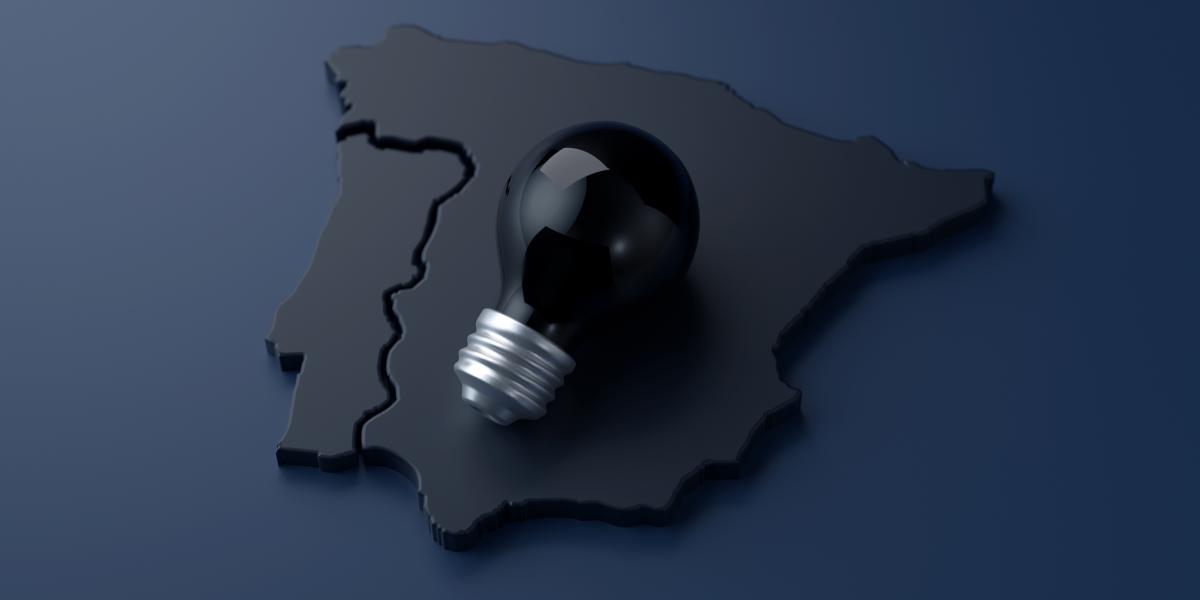The blackout of the Iberian Peninsula and Southern France on Monday, April 28, has led to hot debates among opponents and supporters of renewable energy. Opponents claim that wind turbines and mainly solar power plants caused the blackout, whereas supporters of renewable energy accuse nuclear power plants of causing the problem, claiming that wind and solar energy really helped restart the electricity network. This debate misses the fundamental reason for Europe’s energy problems, however. Ryan McMaken has already pointed out some of the underlying problems, and others can surely give a better technical description of modern electricity generation. Here I’ll simply describe the basic economic reasons for the dysfunction of the European electricity market and power grids.
The Nature of Electricity Markets
Electricity is a commodity and is bought and sold in the open market like any commodity. What makes electricity special is that it must be sold as soon as it has been produced. There is no inventory and no reservation demand for electricity. The supply of electricity in the market is instantly being produced, so it is therefore necessary for not only supply to equal demand, but for actual production to equal demand to maintain the electrical grid. The operation of an electrical grid consists in always balancing supply and demand across the network within very narrow boundaries. This is what went wrong in Spain, as the frequency in the network suddenly fell below the minimum threshold.
Naturally, the operator of a network will be interested in safe, predictable sources of energy to secure a consistent supply (since demand throughout the day is roughly predictable) and to have some marginal sources of electricity that can quickly be switched on and off to deal with unforeseen variations in demand, or with some other unforeseen change. In addition, it is desirable to have some key sources of energy that stabilize or “synchronize” the grid. Nuclear- and coal-powered plants are usually seen as reliable sources that also serve to synchronize the grid, since they have built-in inertia, which automatically counters any sudden changes in frequency. Renewables could, in theory, also serve to synchronize the grid, but they don’t have this role in the European energy market. Large nuclear and coal plants cannot usually increase or decrease their output at a rapid rate, so there is not much immediate backup capacity here. Gas-powered plants on the other hand can, as can renewables, so these sources could serve as backup capacity in the face of large, unforeseen changes in demand or shortfalls of supply from other sources.
Note that the question of maintaining the grid is separate from the question of how much electricity is being generated. All that matters is that production matches demand, and that there are mechanisms in place to balance out unforeseen changes.
Green Energy in European Electricity Markets
One key problem of renewable energy is that it is fundamentally unpredictable. It generates electricity as the wind blows, literally, but it nowadays constitutes the main source of electricity in many European countries. In Spain they celebrated, when on April 16 renewables generated more than 100 percent of domestic demand. How is this possible? On the technical side, synchronization is still performed by non-renewables, the large proportion of renewables in total generation does not change this. But it is still curious how what should be marginal sources of electricity came to dominate, not only in Spain but across Europe.
If you ask the European Union, they make it sound as if electricity generation in the Union is a case of free market activity, with the bureaucrats from Brussels just setting down the general rules that allow the free market to function. Unfortunately, despite the propaganda, reality just is not so. While there is a European market for electricity, it has very little to do with what we usually consider free market exchanges. Actors in the electricity market have to follow a so-called merit order or pay-as-clear mechanism. Suppliers place their bids based on their costs of production, and the demanders have to buy from the cheaper sources first, until the full demand is satisfied. All suppliers are then paid the marginal price.
While this sounds like how price formation works in the free market, it is anything but. Demanders are forced to accept the bids from the cheapest suppliers. Renewables are the cheapest, since in a narrow sense their costs of production are zero—you do not need fuel for a windmill. Hence, the bureaucrats have constructed a system that leads to massive windfall gains to investors in renewable energy, so it’s no mystery that renewable capacity has expanded so massively in Europe, since any positive price (or any price that covers capital and maintenance costs) will be profitable to renewable capitalists.
The Dark Side of Renewables
Since electricity produced by renewables comes at a zero price, it might be argued that the operator—acting in the interest of the final consumer—would still choose to buy as much of it as possible, so it doesn’t matter that he is technically forced to do so. However, the operator is interested in operating not only at lowest input costs; he also wants to maintain his network as cheaply and efficiently as possible while making it as resilient as possible. Unfortunately, renewable energy is incompatible with these goals.
The lack of resilience is the problem most immediately relevant to the Spanish case. Once a crisis arises, where the inertia from the main power plants is not enough to stabilize the grid, an alternative source that can immediately increase its output is necessary. This has to happen within a few seconds. There is nothing technically problematic in having renewables perform this role, they might even be well-suited for it, since their power output can quickly be increased if they operate below the available energy input.
However, the European electricity market is structured in such a way that there is likely never any free capacity from windmills and solar plants available. As the operator is forced to take renewable energy, and since the suppliers profit at virtually any positive price, they will almost always run at full capacity. In a crisis, they are thus simply not available as backup, and because coal and nuclear power plants cannot increase production rapidly enough, this essentially leaves only gas.
Gas is, however, one of the most expensive sources of electricity generation, not least since the “Russian War of Aggression against Ukraine,” as the EU bureaucrats and politicians in mantra-like fashion call it. What happens to gas generation, when for a foreseeable period of time renewables dominate the market, as happened in Spain up to the blackout? The Spanish energy expert Antonio Turiel—no friend of free markets—explains it well: since renewables forced the price of electricity down, the Spanish gas plants stopped providing electricity, and as they expected this state of affairs to go on for a while, they shut down their plants. Thus, when disaster struck and a large source of supply was suddenly removed from the market, there was essentially no backup available. Various industry sources also told Reuters that the lack of stable, synchronous sources of power was a key problem. Once the initial stabilizing effort from the synchronizing sources was spent, a blackout became inevitable. Contrary to Señor Turiel, however, the problem was not greedy managers of gas plants that removed the backup; if anyone is to blame for anti-social greed, the owners of renewables are first in line.
Conclusion
The European energy market is not really a case of socialization. Rather, it is a market of sorts, but one formed by a myriad of interventions. One key intervention that explains the continent-wide integration of grids and the massive growth of the use of renewables is the pricing system. The EU forces operators to accept all the renewable energy that is thrown at them, with the argument that it is the lowest-cost source available. The Spanish Premier Sanchez has dismissed claims that the lack of nuclear power was to blame for the blackout. This is partly correct—blame rests with the politicians and bureaucrats of Brussels and Madrid and their ideological fixation with forcing renewable energy on Europe.
Intervention makes electricity not only very expensive across Europe (a point I’ve not really developed in this article), and it also makes the electrical grids across Europe very fragile. What happened in Spain may be an extreme case, but there’s no reason not to expect many more such cases in the future, so long as renewables are forced on the system in this way.


























